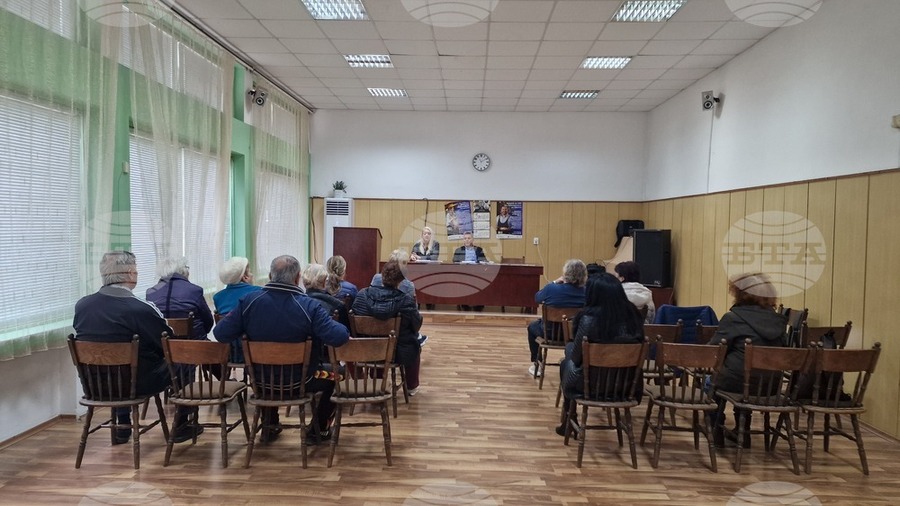Information meetings, part of the National Information Campaign for the introduction of the euro in Bulgaria in January 2026, were held in Kaspichan (Northeastern Bulgaria), Ruzhintsi (Northwestern Bulgaria), Simeonovgrad (Southern Bulgaria), Suhindol (Northern Bulgaria), Bansko (Southwestern Bulgaria)
Experts talked about the main euro changeover stages and deadlines, dual-currency tagging rules, and addressed questions concerning tax returns and social security statements, bank accounts and interest rates.
In Kaspichan, discussions focused on dual-currency tagging rules and tax return procedures. Desislava Vodenicharova, head of the Shumen office of the National Revenue Agency (NRA), said that tax returns for previous periods will report monetary values in the official currency in effect at the end of the reporting period. For future periods, tax returns will use the official currency in place at the time of filing.
In Simeonovgrad, Chief Inspector Vasil Donev from the Haskovo Regional Department of the Commission for Consumer Protection (CCP) predicted that January 2026 will be the most challenging month in the transition from the lev to the single European currency and recommended that people pay cashless, as this would make things easier for everyone.
One of the highlights of the meeting in Bansko was the dual-currency price labeling that will remain in force until August 8, 2026. Experts noted several exceptions such as books, textbooks, gas station pumps, and taximeters. In these cases, merchants must find another appropriate way to inform customers of prices in both BGN and EUR within their premises. All euro coins and banknotes will be in circulation in Bulgaria and outside the country, where the euro is used as the official currency, regardless of design differences and national symbols, experts from the CCP and the NRA said during the meeting.

